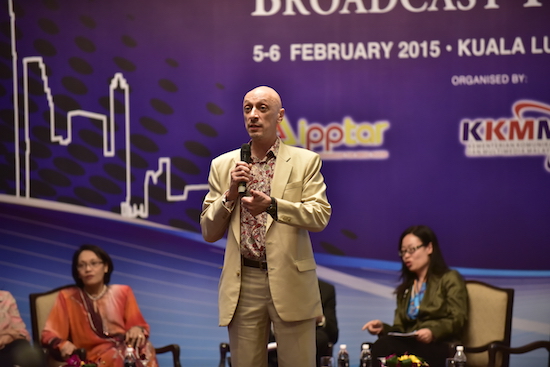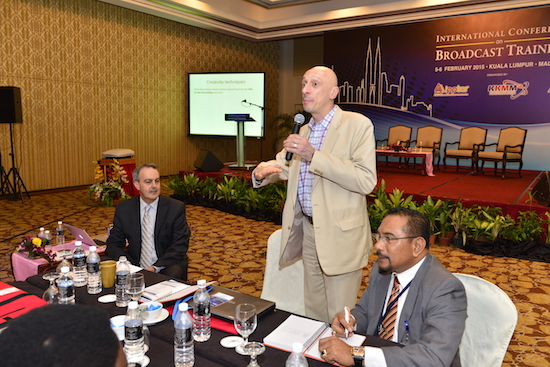ICBT Makes Successful Debut
The 1st International Conference on Broadcast Training (ICBT) has successfully concluded in Kuala Lumpur where we saw a diversity of sharing and engagement in understanding the impact of the evolving media landscape and in identifying models to build the training institutions of today and of the future.
The 1st International Conference on Broadcast Training (ICBT) has successfully concluded in Kuala Lumpur where we saw a diversity of sharing and engagement in understanding the impact of the evolving media landscape and in identifying models to build the training institutions of today and of the future.

During the two-day Conference from 25-26 February 2013, participants have learned how information, technology and our audience are moving fast and we in the broadcast industry, particularly broadcast trainers need to catch up, revisit existing approaches, and address the increasing demands of digital technology and social media. We need to work towards a performance driven culture that contributes to the company’s growth and sustainability, increased customer satisfaction and contribution to society.

In his closing remarks at the Conference, AIBD Director Yang Binyuan expressed his sincere thanks to all our speakers, chairpersons, and participants as well as the main partner, IPPTAR, who have ensured a successful conference.

In this Conference, we examined models to nurture an agile and learning organization for innovation and performance. What is key is to build more exchanges, relationships and engagement if we are to survive and to be of value to our audience.
One such model is the use of the S analysis model that allows broadcast leaders to review their structure, systems, style, staff, skills, strategy and come out with shared values critical in building and delivering training programmes.

Another is to use e-learning, and cloud technology to make training programmes relevant, efficient and convenient. Still another is to design a training program that is customized and individualized to enhance teaching and learning.
Another highlight of the Conference was to identify specific steps to address the human resource needs in the digital migration process. What was important was to engage all stakeholders in facilitating understanding and acceptance of moving towards digital technology.

To be of value to the changing consumer behavior, broadcast stations need to strengthen the new media features of their TV programs and enhance audience interaction through the multi-media platforms. Training through international exposure can be useful to gain a global view of how international broadcast companies produce creative programmes, and serve as inspirations to attract audience participation.

To offer creative content, the Conference also highlighted the demands of sourcing good original idea and well-researched material, with a good character development and good acting, with believable / natural dialogues, all produced in an entertaining, creative and innovative manner.
In attracting and retaining talents, the Conference identified ways to build a winning team provide a dynamic and challenging environment and address increasing needs for good compensation, career advancement and work/life balance.

We specifically noted the need to adhere to an organization’s core values that can contribute towards the recruitment of good talents. We must focus on recruiting people for the jobs of the future for new media and social media and for the next generation of content makers who have different ways of accessing information and entertainment material, of viewing and consuming material, and of creating their own content for social media and mobile phones.

Finally, the Conference identified various criteria to address training obstacles in technology, skills deficiency, and funding among others to strengthen training institutions to deliver results and solutions to meet organization’s objectives and the demands of the ever changing media environment.






